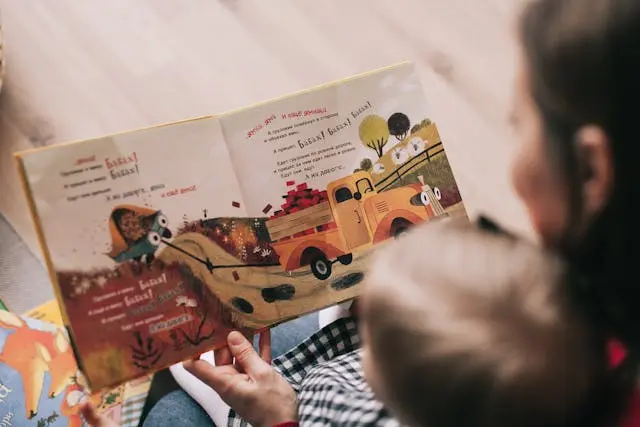Defining Unhealthy Mother-Daughter Relationships
In the grand story of human connections, there’s no bond quite like the one between moms and daughters. It’s a bond that starts with cuddles and baby talk, and it weaves its way through the rocky teenage years and into adulthood. These relationships can be a wellspring of love, support, and friendship. But let’s not forget that family life isn’t always picture-perfect. Sometimes, the ties between moms and daughters can get tangled up in a mess of hurt feelings, misunderstandings, and old grudges.
We’re setting out on a journey to untangle these knots and shine a light on what can go wrong in toxic mother-daughter relationships. We’ll explore the twists and turns that can either strengthen or strain this special connection. Ultimately, our goal is to find paths toward healing and understanding in the midst of this Complex Web of Unhealthy Mother-Daughter Relationships.


Summary
Unhealthy mother-daughter relationships, particularly toxic mother-daughter relationships, are more common than we might think. In this article, we explore seven toxic dynamics that can impact both parties. From overly controlling mothers to constant conflict, these patterns can have long-lasting effects on mental health and well-being. Recognizing these signs early is crucial for healing and building healthier relationships.
Unhealthy mother-daughter relationships encompass a wide spectrum of problematic dynamics that can cause emotional distress and turmoil for both parties involved. Moreover, emotionally absent mothers can have various effects on a daughter and early identification is necessary. These relationships are characterized by:
- Lack of Communication: In unhealthy mother-daughter relationships, there is often a breakdown in communication. It may manifest as frequent arguments, misunderstandings, or an emotional distance that hinders open and honest dialogue.
- Control Issues: One or both individuals may exhibit controlling behaviors. This could include a mother imposing her choices and expectations on her daughter, or a daughter rebelling against her mother’s authority in an unhealthy manner.
- Unresolved Conflicts: Unhealthy relationships tend to be rife with unresolved conflicts, grudges, and lingering resentment. These conflicts may resurface repeatedly, creating an ongoing atmosphere of tension.
- Emotional Manipulation: Emotional manipulation is a hallmark of this type of relationship. It can involve guilt-tripping, emotional blackmail, or playing the victim to gain leverage in conflicts.
Differentiating Between Typical Conflicts and Toxic Dynamics
It’s crucial to distinguish between typical conflicts that arise in any relationship and toxic dynamics specific to unhealthy mother-daughter relationships:
- Typical Conflicts: Every relationship encounters conflicts and disagreements from time to time. These can be healthy and even necessary for growth. In typical conflicts, both parties strive for resolution, understanding, and compromise.
- Toxic Dynamics: In contrast, these relationships are marked by patterns of behavior that are consistently damaging and unproductive. Toxic dynamics involve chronic conflict, emotional manipulation, and a lack of emotional support or empathy from one or both sides.
The Impact on Both Unhealthy Mother-Daughter Relationships
Unhealthy mother-daughter relationships can have far-reaching consequences for both the mother and the daughter involved:
- Emotional Distress: Both parties may experience chronic stress, anxiety, depression, or feelings of inadequacy due to the ongoing tension and negativity in the relationship.
- Stunted Growth: These relationships can hinder personal growth and development. Daughters may struggle to establish their identity and independence, while mothers may find it difficult to let go and allow their daughters to mature.
- Repeating Patterns: Unhealthy dynamics can be cyclical, passed down from one generation to the next. Daughters may inadvertently carry forward the same negative behaviors they learned from their mothers.
- Impact on Future Relationships: The effects of an unhealthy mother-daughter relationship can spill over into other relationships, making it challenging to form healthy connections with friends, partners, or children of their own.
- Physical Health: Prolonged stress and emotional turmoil can have adverse effects on physical health, potentially leading to issues like high blood pressure, immune system dysfunction, and chronic illnesses.
Understanding the defining characteristics of unhealthy mother-daughter relationships is the first step toward addressing and healing these toxic dynamics. It’s essential for both mothers and daughters to recognize these patterns and seek support or counselling to break free from the cycle of dysfunction and move toward healthier, more harmonious relationships.
Identifying Red Flags and Warning Signs of an Unhealthy Mother-Daughter Relationship


Recognizing the signs of an unhealthy mother-daughter relationship or a toxic mother-daughter relationship is like deciphering a puzzle. Here are some key red flags to watch out for:
- Constant Criticism: When criticism becomes a daily routine, it’s a sign of trouble. A mother constantly pointing out flaws or a daughter feeling perpetually judged is a red flag.
- Lack of Boundaries: Healthy relationships have boundaries, but in unhealthy ones, these boundaries blur. A mother who invades her daughter’s privacy or a daughter who disrespects her mother’s personal space may indicate boundary issues.
- One-Sided Conversations: In a healthy relationship, both parties listen and talk. In unhealthy dynamics, conversations may feel one-sided, with one person dominating the discussion, and leaving the other unheard.
- Emotional Distance: Emotional distance can manifest as a lack of affection, hugs, or genuine interest in each other’s lives. A cold or indifferent atmosphere hints at deeper issues.
- Constant Conflict: Occasional disagreements are normal, but if arguments and conflict are constant, it may signify a problem. Explosive, heated arguments or the silent treatment can be signs of a troubled relationship.
Real-Life Stories and Examples to Illustrate Common Toxic Patterns
Let’s delve into some real-life scenarios to understand toxic patterns better:
Example 1: The Perfectionist Mother
Imagine a mother who sets impossibly high standards for her daughter, expecting straight A’s, a perfect appearance, and impeccable behavior. She constantly criticizes her daughter’s achievements, no matter how outstanding they are. This creates a sense of inadequacy and constant stress for the daughter.
Example 2: The Overbearing Daughter
In this case, a daughter becomes overbearing, interfering in her mother’s life, and making decisions for her. She may dismiss her mother’s opinions and refuse to acknowledge her autonomy. This constant control disrupts the mother’s independence and creates tension.
Example 3: The Comparison Trap
A mother who frequently compares her daughter to others, whether it’s her friends, siblings, or even herself in her younger days, creates a harmful atmosphere. The daughter feels like she can never measure up and constantly competes for her mother’s approval.
How Societal and Cultural Factors Can Contribute to These Dynamics
Societal and cultural influences play a significant role in mother-daughter relationships:
- Expectations of Gender Roles: In some cultures, rigid gender roles can affect relationships. Expectations of what it means to be a “good daughter” or a “good mother” can create pressure and conflict.
- Cultural Norms: Cultural norms about family hierarchy, respect for elders, or filial piety can impact communication. In some cultures, questioning or challenging one’s mother may be seen as disrespectful.
- Social Comparisons: The pervasive influence of social media and societal standards of beauty and success can amplify comparison and perfectionism in relationships. Mothers and daughters may feel compelled to meet unrealistic ideals.
- Stigma Surrounding Mental Health: Societal stigma around mental health issues can prevent open discussions about emotions and struggles. Mothers and daughters may suffer silently, unable to seek help or express vulnerability.
Recognizing these signs and understanding their origins is a crucial step toward improving an unhealthy mother-daughter relationship. It’s important to remember that every relationship is unique, and while these signs can serve as guidelines, seeking professional help or guidance is often necessary to navigate and heal deeply ingrained toxic patterns.
A Deep Dive into Unhealthy Mother-Daughter Relationships


Let’s take a closer look at what makes some mother-daughter relationships toxic:
- Unhealthy Power Dynamics: Toxic mother-daughter relationships often involve an imbalance of power. It can be a mother who tries to control every aspect of her daughter’s life or a daughter who constantly challenges her mother’s authority.
- Communication Breakdown: In a toxic mother-daughter relationship, communication is often strained or nonexistent. Conversations may be filled with criticism, blame, or manipulation, making it hard for both sides to express themselves honestly.
Analyzing Common Toxic Mother-Daughter Relationship Behaviors and Their Impact
Toxic behaviors are like poison ivy in a garden, causing harm to the relationship:
- Manipulation: Mothers or daughters may use guilt trips, emotional blackmail, or passive-aggressive tactics to get their way. This manipulation can erode trust and breed resentment.
- Constant Criticism: In toxic dynamics, criticism becomes a constant companion. Mothers may criticize their daughters’ choices, while daughters may critique their mothers relentlessly. This damages self-esteem and self-worth.
The Emotional Toll on Both Parties
These relationships are emotionally draining for everyone involved:
- Daughters: They often feel like they’re walking on eggshells, constantly seeking approval and feeling unworthy. Anxiety, low self-esteem, and a sense of never being good enough are common.
- Mothers: Mothers in toxic mother-daughter relationships can also suffer. They may feel unappreciated, frustrated, or unable to connect with their daughters. Guilt and sadness can weigh heavily on them.
Breaking down toxicity means acknowledging these harmful behaviors and their impact. It’s the first step toward healing and rebuilding a healthier, happier mother-daughter relationship. Just as a broken bridge can be repaired with the right tools, understanding and addressing toxic behaviors can mend the bonds between mothers and daughters.
Seeking Healing and Change
Acknowledging the problem is the vital first step in healing a toxic mother-daughter relationship. It’s like recognizing a storm on the horizon, it allows us to prepare and find shelter. Once we acknowledge the issue, we can employ strategies to break free from toxic patterns, such as open communication, setting boundaries, and fostering empathy. Remember, healing is not a solitary journey; there are resources and professional help available for those in unhealthy relationships. Just as a wounded traveler seeks a guide through treacherous terrain, reaching out for support can guide mothers and daughters toward a path of understanding, forgiveness, and growth.
Embracing Transformation
Understanding unhealthy mother-daughter relationships requires recognizing the warning signs and acknowledging their deep-seated origins. By prioritizing open communication, empathy, and seeking support, individuals facing such challenges can begin the journey toward healing. It’s essential to remember that change is possible, and with effort and determination, these bonds can transform into healthier, more loving connections. Encouraging dialogue and reaching out for help, just as a guiding light in the dark, can pave the way to stronger, more positive mother-daughter relationships, offering hope for a brighter future.










8 Comments